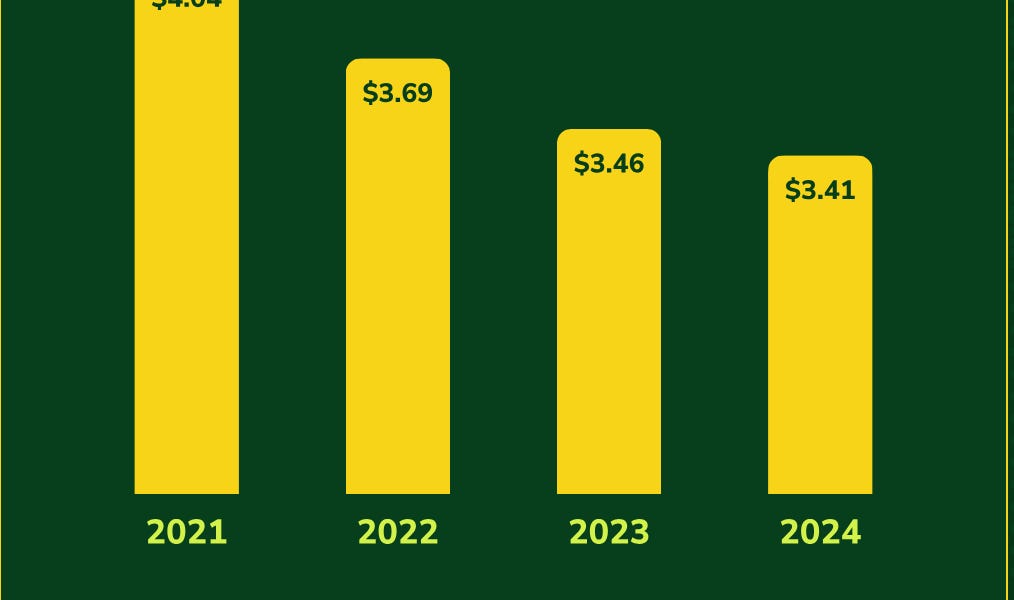Nadia Odunayo never planned to take on the mighty global juggernaut that is Amazon, but for many book lovers, she has become the hero they didn’t know they needed.
For 18 years, bibliophiles have been able to catalogue their reading, leave reviews and star ratings, and get recommendations for their next read on Goodreads, which was set up by two Stanford University alumni from California.
In 2013, Goodreads’ founders sold it to Amazon, and the already hugely popular site skyrocketed. It now has an estimated 150 million users.
One of those users, since 2012, was Odunayo, a software engineer and developer from London. Six years ago, she sat down to create what she imagined might be a companion app to Goodreads.
After building a demo for a few friends, she quickly realised it was more likely to be a competitor, offering readers’ tracking tools and trends – using AI – that could help recommend their next book. And as of this week, The StoryGraph has 3.8 million active users, many of whom have ditched Goodreads.
In a blogpost entitled “Leaving Goodreads in 2025!” just before Christmas, a blogger and reviewer going by the name Books With Bunny wrote: “I don’t love that Goodreads is owned by Amazon. There’s so much about the company that I don’t agree with … Goodreads feels outdated. Its interface looks clunky, and the features are limited … I’ve found Goodreads’ recommendations underwhelming and heavily skewed toward popular titles.”
Bunny announced she would be using The StoryGraph going forward: “I’ve been loving it so far! Not only is it woman-owned, but it also offers so many fantastic features.”
A Goodreads spokesperson said on Saturday that in 2024 it “welcomed millions of readers and we saw strong year-over-year growth in book tracking with our community adding hundreds of millions of books to their want to read, currently reading, and read shelves”.
Odunayo, 33, said: “I think people love the different types of data we give. We just have a lot of really cool features, and the buddy read-alongs.
“But I think the number one thing, if people are comparing us with Goodreads, is that a lot of people do go: ‘It’s just not owned by Amazon.’”
Goodreads has struggled with a perception that there can be malicious reviewing and even personal attacks on authors from users. In 2023, debut author-to-be Cait Corrain was dropped by her publisher, Del Rey, and her planned publication was scrapped after she admitted creating fake Goodreads accounts to boost the ratings on her own work and attack other debut authors with books due out at the same time as hers.
In the wake of the Corrain incident, Goodreads released a statement saying that while it welcomed both positive and negative reviews, it “prohibits reviews that are not relevant to the book, harass readers or authors, or attempt to artificially deflate or inflate the overall rating of the book”.
It added: “We continue to invest in improvements to quickly detect and moderate content and accounts that violate our reviews or community guidelines.”
The StoryGraph has tried to head off such problems by not allowing private messaging or comments on reviews. Odunayo said she wanted to avoid a situation “where anyone can just comment on your review and you’ve got to deal with being scared to put reviews up there”.
Odunayo never had ambitions to work in tech when she was younger. She studied philosophy, politics and economics at the University of Oxford and had an offer to work for Deutsche Bank.
But after winning a competition for a place on a coding course for women – “just a nice skill to have in my back pocket” – the tech industry became her home.
after newsletter promotion
She considers herself fortunate. “I’ve been in the tech industry for a decade now, and it is heavily white male-dominated, but I’ve been lucky with my colleagues and the companies I’ve worked with. Even going to Oxford, there weren’t many people around that looked like me,” she said. “So I know not everyone like me has that experience.”
The StoryGraph, despite its climbing user numbers, is still run by Odunayo, who puts videos on Instagram and social media, talking about the app and her own reading, and answers direct messages personally.
But given the rate of growth, can that continue? And what if Amazon comes calling with a briefcase full of cash to buy out its Goodreads competitor?
“That’s not something we’re interested in,” says Odunayo. “We had zero investment in The StoryGraph. It’s a completely bootstrapped company. Anything can happen in life, obviously, but right now we’re happy and we’re enjoying it. We see The StoryGraph as our life’s work.
“I don’t think there’s a limit to how big we can get and maintain what we’re doing now. I just want more people to know about us. I want us to be the most popular book app in the world.”
For Odunayo, the reason she started all this in the first place – the books – is more important than ever. “I remember a friend posting on social media that he’d had a busy year and only managed to read 45 books,” she said. “And I was thinking: ‘Wait a minute – I’m single, I don’t have any kids, the company I was running at the time was a 9am until 6pm situation, and I’ve only read 13 books this year.’
“So I set myself a target of 30 or so books a year. It’s funny, because people always say to me: ‘Your reading must have plummeted since you set up The StoryGraph, being a one-woman development team’ – but it’s shot up.”
In fact, Odunayo now reads 70 or 80 books a year, split between nonfiction and novels. Her current read is The Ministry of Time by Kaliane Bradley. “I was exposed to so many more books through interacting with readers that I was like: ‘Oh, I need to read this; I want to read that.’ But I’m now the CEO of a company that’s a reading tracking app. So reading is now part of my whole identity.”















